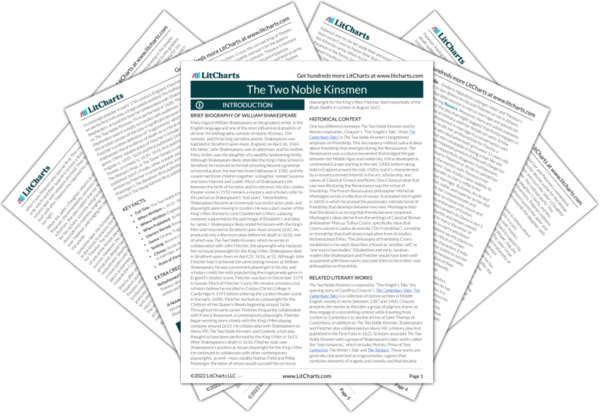Arcite's garland symbolizes victory within the play's literary context and in reality: in ancient Greece, laurel wreaths were awarded to victorious military figures, poets, and athletes. Theseus rightfully claims that the losers will want death. His observation that "their lives but pinch 'em" refers to the unbearable shame knights like Palamon and Arcite would have attached to justly losing a battle and not accepting punishment. Palamon and his knights will eagerly await their execution because accepting punishment is the brave, noble thing to do. Furthermore, their loss is a sign that the gods have not favored them, which gives them further reason to look forward to receiving their punishment. After all, they wouldn't want to question the gods' judgment. Although everyone accepts that the gods have selected Palamon and his knights to die, they can't help but mourn the tragedy of the situation. Hippolyta's remark suggests that she, like Emilia, is particularly sympathetic to the tragic end of Palamon and Arcite's friendship. When she muses what an "infinite pity" it is that “four such eyes should be so fixed on one / That two must needs be blind for it," she means it's a shame that Arcite and Palamon let their obsession with Emilia come between them like this.
